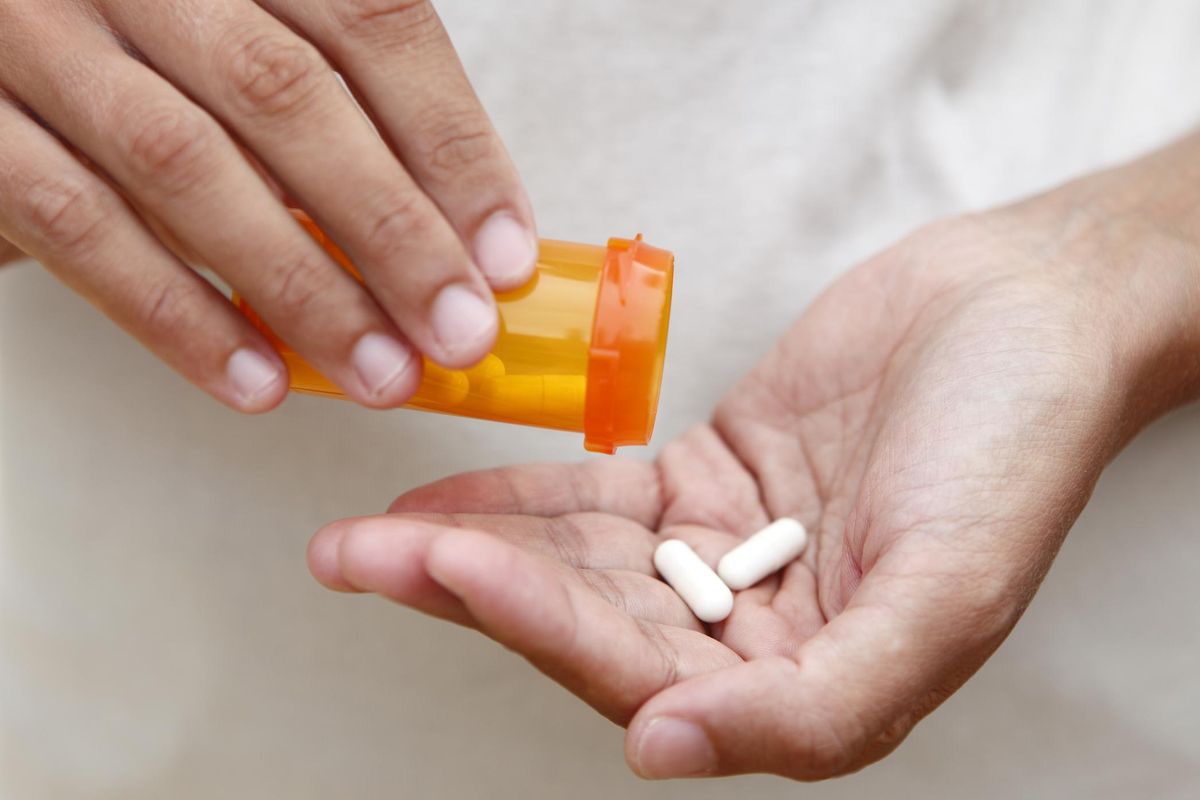When Terry Bravo had a urinary tract infection in 2018, she took her mother’s unused antibiotics, left over from a prescription her mom had never finished four years before. Bravo said it was the only antibiotic she could get.
Although Bravo has health insurance, she said it costs a lot and barely covers anything.
“I might as well not have it,” she said.
Taking her mother’s old medication made Bravo nervous about potential side effects and negative interactions with other medications. She wasn’t sure the drug would even work.
“In retrospect, I should have just gone to the doctor and gotten a prescription for the right medication,” Bravo said. “There are so many antibiotics and just because something is called an antibiotic doesn’t mean that it’s the right one.”
Bravo is like nearly half of Americans who admit to not taking antibiotics as prescribed. For many people living in underserved and low-income communities, cost is a significant barrier to getting the proper treatment or medications.
Sometimes people who can’t afford their medications might not take the entire dose to save some for future use. This practice of not finishing the prescribed dose kills only the weak germs, leaving the stronger germs behind. Over time, this practice, as well as the general overuse of antibiotics in society, can lead to antibiotic resistance, which is one type of antimicrobial resistance (AMR). AMR occurs when germs, such as bacteria, viruses, fungi and parasites, develop resistance to the medications used to treat them.
“Sometimes patients do not have money for copayment of antibiotic prescriptions at the pharmacy, and they may reduce their doses or not take a prescription of antibiotics as frequently as recommended, so that they can save money,” said Oladele “Dele” Ogunseitan, Ph.D., an expert in antimicrobial resistance and stewardship and presidential chair and professor of population health and disease prevention at the University of California, Irvine Program in Public Health. “This is a very dangerous practice because low doses of antibiotics may be ineffective and more likely to generate antibiotic-resistant bacteria.”
The Kaiser Family Foundation found that people with less education and lower incomes were more likely to believe antibiotics can treat viral infections or say they don’t know what types of infections antibiotics treat, raising the risk of misusing antimicrobial drugs.
Lack of health education isn’t the only factor contributing to AMR. According to Ogunseitan, lower-income communities typically have fewer places where people can dispose of antibiotics properly. Improperly disposing of antibiotics can pollute the water supply and may allow antibiotic-resistant bugs to emerge and spread. People without health insurance and access to preventive care also may not find out early that they have an infection, which Ogunseitan said can lead to stubbornly resistant infections.
Social factors such as income and education not only increase the risk of AMR but research suggest that these factors also may increase the risk of harm from AMR. For example, in lower-income communities, infection rates may be higher and access to affordable healthcare lower. With less ability to pay for multiple or more expensive treatments, trying multiple antimicrobial drugs if the first-line treatments fail may be unrealistic. In turn, people without insurance or ability to pay for treatment are even more vulnerable to severe or untreatable infections.
To reduce AMR, Ogunseitan recommends policies and programs to educate children about antibiotic resistance as early as grade school, removing the use of antibiotics in agriculture other than for treating sick animals, and ensuring that antibiotic-free groceries don’t cost more than products that contain antibiotics.
Ogunseitan also said healthcare providers need education about the social determinants of health to avoid missing diagnoses or making biased assumptions that certain patients won’t be able to afford copayments or take medications as prescribed.
“Knowledge is power, particularly in public health,” Ogunseitan said — for patients and providers alike.
This resource was created with support from Pfizer Inc.
- Antibiotic Resistance Is at a Crisis Point – Government Support for Academia and Big Pharma to Find New Drugs Could Help Defeat Superbugs - HealthyWomen ›
- New Technology Can Create Treatment Against Drug-Resistant Bacteria in Under a Week and Adapt to Antibiotic Resistance - HealthyWomen ›
- Clean Out Your Medicine Cabinet for National Prescription Drug Takeback Day - HealthyWomen ›
- AMR 101 With Dr. Uzma Syed - HealthyWomen ›
- The Biden Administration Needs to Wage War Against AMR - HealthyWomen ›







